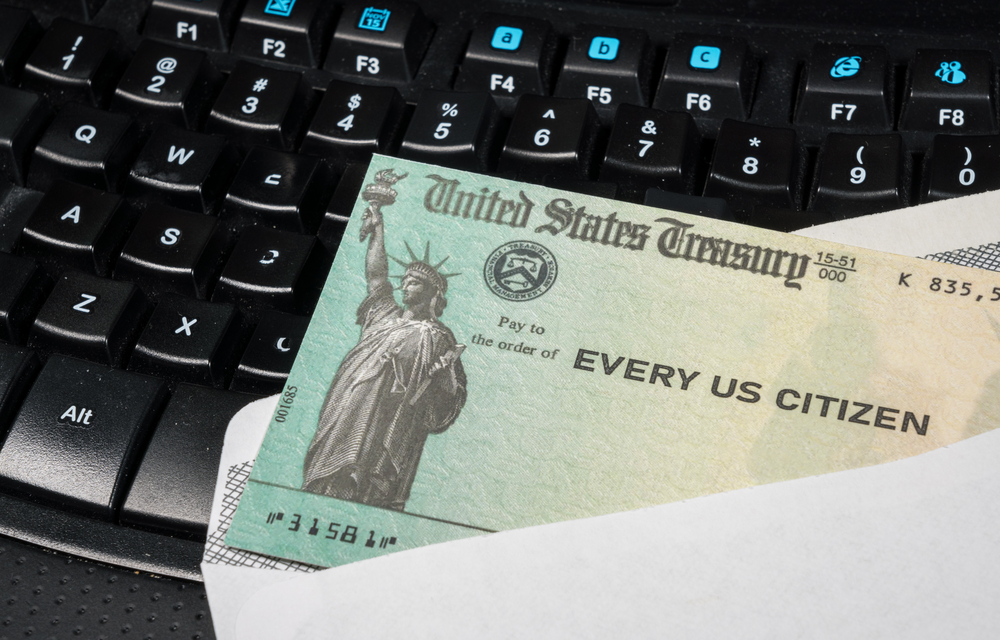

 The stimulus checks sent out as part of the CARES Act were the biggest headliner that came out of the $2 trillion piece of legislation. Giving $1,200 to each adult, plus $500 for each dependent child, was a relief to many citizens who are suffering financially in the wake of the COVID-19 pandemic. But, due to certain wording in the way these checks were distributed, there has been a great deal of confusion over whether these checks really were a free check from the government, or if you’re expected to pay them back down the line. We hope we can answer all your questions in this regard here.
The stimulus checks sent out as part of the CARES Act were the biggest headliner that came out of the $2 trillion piece of legislation. Giving $1,200 to each adult, plus $500 for each dependent child, was a relief to many citizens who are suffering financially in the wake of the COVID-19 pandemic. But, due to certain wording in the way these checks were distributed, there has been a great deal of confusion over whether these checks really were a free check from the government, or if you’re expected to pay them back down the line. We hope we can answer all your questions in this regard here.
The Short Answer
If you’re looking for a short answer to this question, it’s no. No, you will not have to repay your relief check. It also won’t be taken out of any tax refund you may be expecting when you file your 2020 return. The check is given by the government to all qualifying citizens, with no expectation of repayment. If you’re looking for a bit more of an explanation to this, and why many are confused on this matter, keep reading.
An Advance on a Tax Credit
The reason that there is so much confusion about this is because the relief checks are technically an advance on a tax credit. Obviously, this terminology can lead you to believe that you’re just getting your tax refund in advance, and you’ll get less later. But here’s what many people are overlooking: the COVID-19 relief checks are an advance on a new tax credit, one that nobody has ever received before or will receive again, and one that everybody below the income threshold will receive.
Essentially, the government has added this $1,200 tax credit to every adult’s tax refund who falls below the income threshold—an additional $1,200 tax return. But because people need it right now, they’re giving it in advance. This means that when you file your 2020 return, the credit will be listed, but it will be listed as already having been paid.
While confusing, this verbiage was necessary in order to employee the IRS’s payment distribution system, which was the fastest way to get funds to struggling Americans.
Is It Taxable Income?
Another point of confusion for many people is whether or not they will have to pay taxes on the stimulus amount they receive. Again, the answer here is no. The stimulus check is considered non-taxable income, so receiving it will not increase the amount you owe on your 2020 taxes.
Will It Be Held for Unpaid Taxes?
If you have unpaid taxes with the federal government, you might be worried about them keeping your stimulus check in order to cover those unpaid bills. The answer here is also no. The federal government will not keep your stimulus check or reduce it to cover an unpaid tax bill. However, if you do owe taxes, it’s important to be aware that the new deadline of July 15 is quickly approaching, and it may be wise to use a portion of your stimulus check to cover that bill.
If Your 2018 or 2019 Income Is Too High
Another hang-up that many people have with the stimulus checks is how your income is calculated to determine whether or not you qualify for the full stimulus amount. The relief amount begins to be reduced if you make over $75,000 (or $150,000 as a couple), and is phased out completely if you make over $99,000 (or $198,000 as a couple). But, obviously, you don’t know what your 2020 income will be just yet, so the IRS uses your income from your 2019 tax return (or 2018, if you haven’t filed your 2019 return yet). If your income from your most recent tax return is too high, you won’t receive a check.
But, obviously, the pandemic has greatly reduced many people’s earnings this year. So, what if, at the end of 2020, it turns out that you did qualify for the check? While you unfortunately won’t be getting one during the peak of these difficult times, you will get the check that you qualified for in the form of a tax return when you file.
Now, what if the opposite happens? What if it turns out that you actually made more in 2020 than you did in 2019, and you shouldn’t have gotten the check, or should have gotten less? Will you have to pay it back then? The answer here is, again, a no. The federal government has no intention of coming after citizens to take back stimulus checks already issued, so you can rest easy.
We hope this has answered your questions regarding your relief checks, and that you can now feel comfortable using these funds to help your family through these difficult times. If you have any further questions, please reach out to one of our CPAs.
Article provided by: